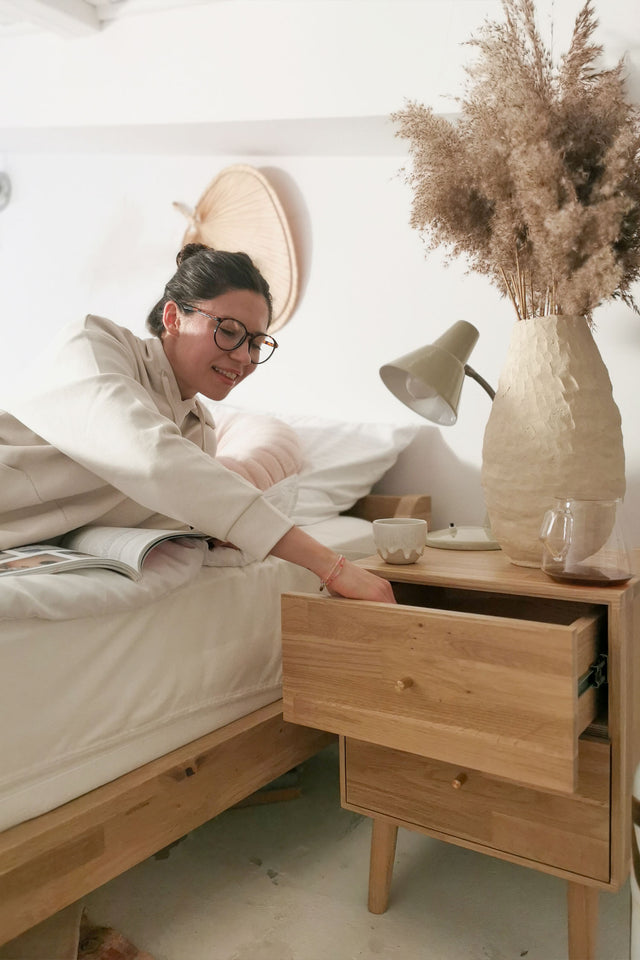Sleep hygiene - what affects a good sleep how to sleep?
A healthy and qualitative sleep is one of the main foundations of successful life and everyday functioning. Each of us knows how sleeplessness can spoil our mood and write down all day for losses. After all, sleep is the physiological condition of the body, which is characterized by reversible loss of conscious contact with the environment, reduced reactivity to external stimuli and inhibition of physical activity. Interestingly, each of us sleeps about 30% of our lives! But what if we have difficulty falling asleep and we sometimes lie in bed and even wait with anxiously for sleep?
What is sleep hygiene at all?
Hygiene is a term that we usually associate with cleanliness, taking care of some aspects. It is also a special department of medicine, which tells us what it supports, and which in turn interferes with the proper development of man. We can distinguish such hygiene departments - it all depends on what area of life we will refer to. In the case of sleep hygiene, factors that affect its quality are examined. We can distinguish several factors, positively affecting the overall hygiene of our sleep. However, these are very individual factors, because what successfully works on one person may not work so well on someone else. The most important thing is to introduce such actions into your own life, which will translate individually into sleep quality.
A good and healthy dream - what affects him?
The main principles of sleep hygiene and factors affecting healthy and good sleep are influenced above all by:
- Regulated lifestyle and permanent time to get up
It is worth receiving all signals that the body provides us. So if we get information that we are tired, it is also worth going to sleep at this point. If we can't fall asleep, it is also worth avoiding naps during the day, which are usually a very good solution, especially when we feel tired. The time of falling asleep is also a very individual matter. Some are much more efficient in the morning, others are ready to act at late times. Regardless of which group we belong to, it is worth our lifestyle and the time of getting up are regulated.
- Exposure of the body to light
Light has always been a key indicator of the passage of time in the daily cycle. Therefore, if we expose our body to its action at the wrong time, we will impress our circadian rhythm. That is why it is so important to avoid contact with light in the evening. The blue light, which is emitted from electronic devices, such as a smartphone, tablet, laptop or TV, has a particular negative impact. It is worth avoiding such light even three hours before bedtime.
- Appropriate body and room temperature
Our body temperature approximately 36.6 degrees Celsius. Interestingly, it reaches its peak around 6pm. From that time, until the moment you go, it should sleep slightly. Therefore, hot baths and eating very hot meals are not recommended at that time. The right air temperature in the bedroom should, in turn, be 19-22 degrees of Celsius.
- Mute and relaxation
Before going to bed, our body should be enough muted and relaxed. Therefore, three hours before bedtime, try not to get over physically and mentally. Let's relax with our favorite book or music. Meditations, aromatherapy and breathing exercises are also very popular recently.

Sleep quality largely depends on physical activity
We have not mentioned physical activity for a reason, because it is worth devoting it to a separate paragraph. Sustainable, but also systematic physical activity has a very positive impact on many aspects of our lives. One of the main is sleep, especially in the case of people who do work that does not require physical effort. Thus working people should do physical exercises (even a walk) every day, for at least 30 minutes. Slight fatigue causes our sleep to be deeper and longer. Interestingly, people suffering from insomnia very often undertake too little physical effort, and too much mental during the day. The best time for exercises are the afternoon and early times. So we speak here at 17-19. However, do not choose a time later than three hours before the planned going to sleep. The best form of activity for our sleep will be jogging, cycling or swimming.
How to sleep? So what to do when we can't sleep?
In many of us, despite compliance with the above advice, there is a situation when we cannot sleep and unfortunately we fight to fall asleep by force. At that time, nervousness and anxiety appear, which even intensify the obstruction of falling asleep. Paradoxically, in such a situation it is better to get out of the bedroom for a moment and take our head with something other than they think about falling asleep. Let's get back to bed only when drowsiness appears again.
Nevertheless, systematic compliance with the above -mentioned rules, gives a short improvement. However, if insomnia still persists, it is worth consulting a doctor. Sometimes more detailed tips on dream hygiene and even drugs that facilitate falling asleep are necessary. Insomnia often is also a symptom of a different disease such as depression.

pictures: muastudios
















